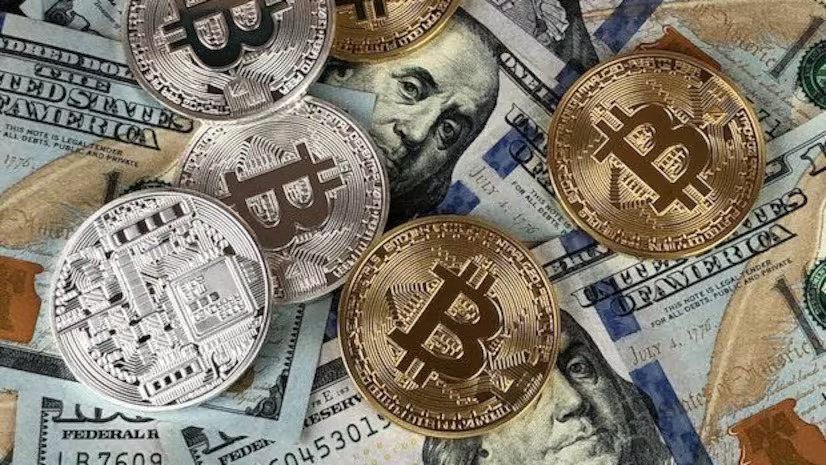Bitcoin In Financial Crises - Digital Gold Or Risky Bet?
Explore role of Bitcoin in financial crises, offering resilience and decentralized solutions.
Author:James PierceReviewer:Camilo WoodFeb 13, 202411 Shares11.3K Views

The role of Bitcoin in financial criseshas been a topic of significant interest and debate. As a decentralized digital currency, Bitcoin emerged in the aftermath of the 2008 global financial crisis, with the aim of providing an alternative to traditional financial systems.
In this detailed exploration, we will delve into the role of Bitcoin in financial crises in detail, both as a potential hedge and as a subject of scrutiny.
Genesis Of Bitcoin
Bitcoin was introduced in a whitepaper published in 2008 by the pseudonymous Satoshi Nakamoto, coinciding with the height of the global financial crisis. Nakamoto envisioned Bitcoin as a decentralized form of currency that operates independently of central authorities, banks, and governments.
Silicon Valley Bank Crisis April 2023
The price of bitcoin shot beyond$25,000 shortly after Silicon Valley Bank failed in April 2023, hitting a level the virtual currency hadn't crossed since June. Bitcoin climbed by 70% year to around $30,000 this week.
Proponents of bitcoin took advantage of the price increase to claim that investors were switching from traditional currencies to digital coins as a result of the banking crisis. The bank failures were heralded by one cryptocurrency executive as "the end of the USD and the dawn of hyperbitcoinization." One company that sells bitcoin to investors began mentioning the bank runs in their marketing materials.
However, there isn't much proof that the recent banking crisis has led to a generalized acceptance of bitcoin as a substitute for traditional financial institutions, despite the hype.
Rather, observers noted that a variety of financial phenomena unrelated to the philosophical foundations of the technology drove the price spike of bitcoin. The jump can be attributed to a number of factors, including growing expectations that the Federal Reserve will postpone raising interest rates and growing concerns regarding the security of so-called stablecoins, a class of cryptocurrency designed to keep its price at $1.
According to an investigation by crypto research firm Kaiko, limited liquidity, a measure of how simple it is to purchase and sell a digital asset without altering its price, is another factor contributing to Bitcoin's recent increase.
It is now more difficult to trade bitcoin because fewer big financial institutions are purchasing and selling it after the cryptocurrency market crashed last year. Although the price of bitcoin has always fluctuated, in the present market, a few trades might cause a large gain or fall in price.
Crisis Hedge Narrative
Proponents argue that Bitcoin serves as a hedge during financial crises. The narrative suggests that, similar to precious metals like gold, Bitcoin can act as a store of value and a safe haven asset when traditional financial systems face uncertainties.
Divergent Asset Class
Bitcoin is often considered a non-correlated asset, meaning its price movements do not necessarily align with traditional financial markets. Some investors view this divergence as an advantage during times of economic turmoil when traditional assets may experience heightened volatility.
Store Of Value
The concept of Bitcoin as "digital gold" is rooted in its limited supply of 21 million coins. This scarcity, combined with its decentralized nature, has led some to perceive Bitcoin as a long-term store of value, particularly when fiat currencies face inflationary pressures.
Accessibility And Inclusivity
Bitcoin's decentralized nature allows individuals to access the financial system without relying on traditional banking infrastructure. This accessibility can be particularly valuable during a financial crisis when traditional banking services may be disrupted.
Global Economic Uncertainty
During times of global economic uncertainty or currency devaluation, some individuals and institutions turn to Bitcoin as a means of preserving wealth. This is especially true in countries facing economic crises or hyperinflation, where Bitcoin may offer an alternative financial system.
Speculation And Volatility
While some view Bitcoin as a hedge, others argue that its speculative nature and price volatility make it a risky asset during financial crises. Rapid price fluctuations can expose investors to significant gains but also substantial losses, making it a challenging asset to navigate.
Market Liquidity
Bitcoin's liquidity is another factor that comes into play during financial crises. While the market has grown significantly, liquidity may still be a concern, impacting the ease of buying or selling large amounts of Bitcoin, especially in times of heightened demand.
Regulatory Scrutiny
Bitcoin's decentralized and pseudonymous nature has led to regulatory scrutiny during financial crises. Governments and regulatory bodies may closely monitor or intervene in the cryptocurrency space to ensure compliance with existing financial regulations.
Bitcoin In Financial Crises - FAQs
What Happens To Bitcoin If Recession?
The same directional emotion that affects retail stock investors has also been shown to affect cryptocurrency prices.
How Has Bitcoin Performed During Past Financial Crises?
Bitcoin's performance has varied, with debates on its role as a hedge and its susceptibility to market volatility during economic downturns.
Is Bitcoin A Reliable Store Of Value During Financial Crises?
Views on Bitcoin as a store of value differ; proponents argue its scarcity and decentralization make it a reliable option, while critics cite its volatility.
Can Bitcoin Act As A Safe Haven Asset During Financial Turmoil?
The narrative of Bitcoin as a safe haven asset suggests it could provide a hedge during financial crises, but this remains a subject of debate among experts.
What Are The Risks Associated With Using Bitcoin As A Financial Crisis Hedge?
Bitcoin's speculative nature, price volatility, and regulatory uncertainties are some of the risks investors consider when using it as a hedge during financial crises.
Will Bitcoin Go Up If Banks Collapse?
Bitcoin gained notoriety due to banking crisis. Bitcoin and other cryptocurrencies saw an increase as one bank collapsed and another closed, and they all attribute the weekend banking crisis to shifting expectations.
What Is Bitcoin's Role In The Global Banking Crisis?
It's becoming more and more obvious that the trustless and decentralized nature of Bitcoin was designed as an antidote to the increasingly unstable banking system, and that these same principles will prove to be an antidote in the wake of the largest international bank collapses since the 2008 financial crisis.
Conclusion
Bitcoin in financial crises is multifaceted, with proponents highlighting its potential as a hedge and critics emphasizing its risks. As the cryptocurrency landscape continues to evolve, ongoing research and careful consideration of Bitcoin's role in financial crises will be crucial for investors, policymakers, and individuals navigating an ever-changing economic landscape.

James Pierce
Author

Camilo Wood
Reviewer
Latest Articles
Popular Articles

